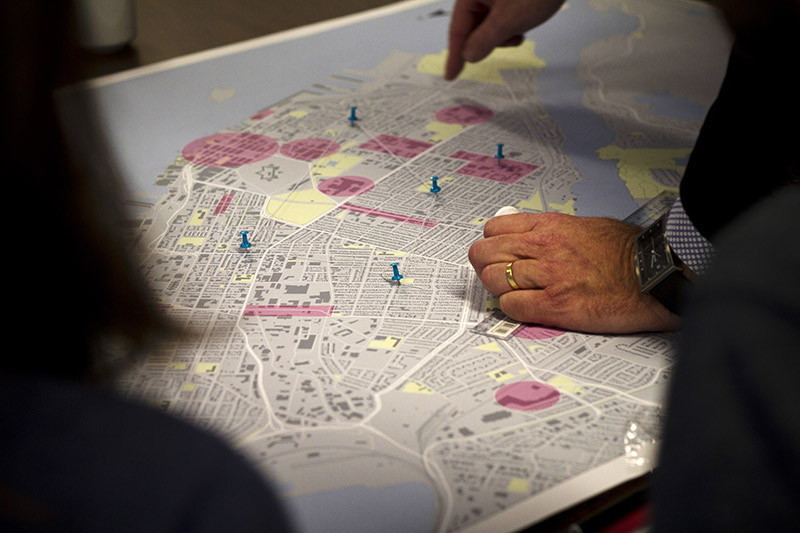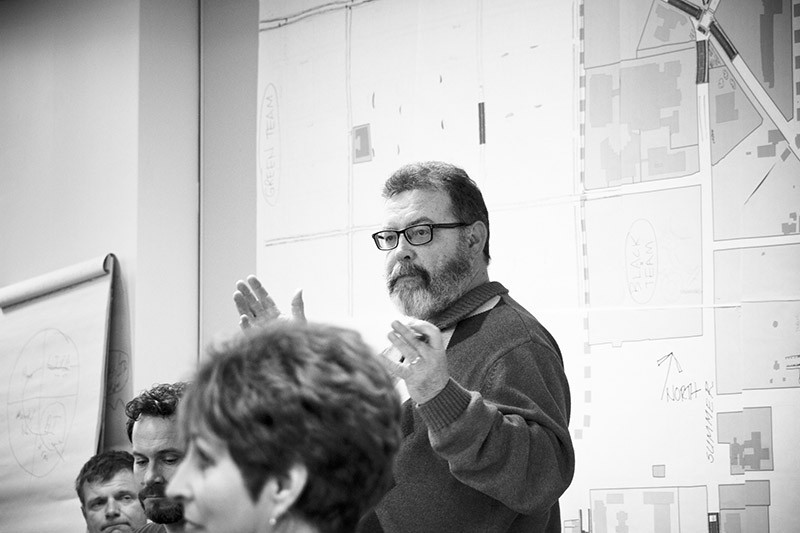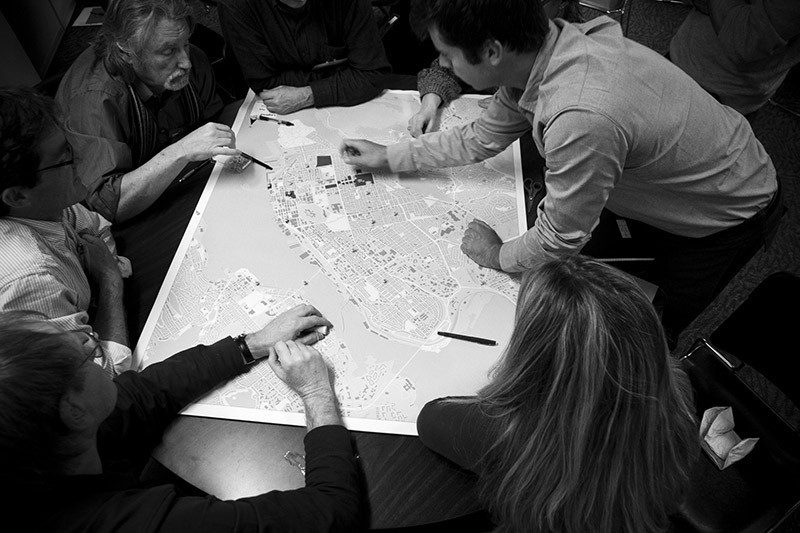East meets west in pro-biking seminar
Local industry leaders prepare to talk city policy, design with foreign experts
As a bike courier, Kat Hindmarsh knows Winnipeg’s infamous bike culture better than most.
“I’ve had people throw things at me, yell at me and try to run me off the road,” said Hindmarsh, who works as a bike courier at Natural Cycle Courier.
There are big challenges facing Winnipeg cyclists, according to Hindmarsh, from a lack of connectivity between various bike paths and a seemingly anti-cyclist road culture.
“There are some great drivers out there who are very considerate (of cyclists),” said Hindmarsh, 26, who has worked as a cycle courier for the last two years. “But I do think there’s an attitude that cyclists don’t belong on the road with drivers here - not from everybody, but definitely from some.”
Luckily for her and other cyclists in town, however, change could be on its way.
From Thursday, Nov. 22 to Friday, Nov. 23, Kickstand Training Sessions - billed as a master class in bicycle policy, planning and culture - will convene at the University of Manitoba, inviting politicians, transportation planners, cycling advocates and others to get schooled in all things two-wheeled and muscle-powered.
Angela Van Der Kloof, a sustainable mobility consultant and member of the Kickstand team, says the sessions present exciting possibilities for urban development in Winnipeg.
“What we’ve seen in previous sessions is that by bringing together people from vastly different cities, we can come up with some pretty fascinating ideas through those new combinations of perspectives,” said Van Der Kloof.
“We’re going to try and get people out of their comfort zones.”
The sessions, which are being toured through five cities across North America, are the product of a partnership between two Dutch and Danish companies, and the combined industry knowledge of various experts from each.
According to Van Der Kloof, the goal of the sessions is to share experience gained from successful cycling policy and infrastructure design in the organizations’ home countries.
“We’ve had different development (with respect to cycling infrastructure) in the Netherlands,” said Van Der Kloof, referring to her own country.
“We’re not so much of a car-oriented society as North America. (In the Netherlands and Denmark) everybody cycles. There isn’t this war between cars and bicycles - it’s generally understood that city planning needs to accommodate both.”
In the Netherlands, for example, officials are currently considering the installation of geothermal-heated bike paths to encourage winter cycling.
The paths could cost up to $50,000 per kilometre, according to preliminary estimates, but proponents argue decreased medical costs due to accident reduction, as well as lowered demand for maintenance and salting, would help offset the project’s price tag.
The Winnipeg sessions will feature speakers from a wide range of fields, including urban planning, engineering, economic development and health promotion, and focus largely on interactivity and dialogue.
Attendees should make sure to bring imaginations and open minds, Van Der Kloof said.
“We encourage people to think in a way that puts the cyclist at the centre of things for a change.”
Caleigh Christie, active volunteer and former coordinator at the University of Winnipeg Students’ Association Bike Lab, called the sessions a “pivotal point” for Winnipeg movements pushing for a greater prioritization cycling infrastructure.
“This workshop will be the real kick in the butt this city needs,” said Christie, who attended an international cycling conference in Vancouver last year.
“Creating a safe cycling environment that people other than young daredevils are willing to use is really important,” she added, noting some Winnipeg cyclists’ fears of inconsiderate motorists.
“ (In the Netherlands and Denmark) everybody cycles. There isn’t this war between cars and bicycles - it’s generally understood that city planning needs to accommodate both.
Angela Van Der Kloof, sustainable mobility consultant, Kickstand Sessions
Christie stressed the need for investment in separated bike lanes along key routes, as well as extra consideration of speed limits on stretches where cyclists run an increased risk of vehicle collision.
However, she lauded certain progressive moves by the city, such as the recently completed bike path along Pembina Highway, as positive omens.
Anders Swanson, who is heading the local organizing committee bringing Kickstand to Winnipeg, believes the training session is particularly well suited to the city.
“One thing (the session instructors) are going to be bringing to this is a really good understanding of climate and geography,” said Swanson, noting the unique challenges that arise with respect to cycle-oriented urban planning in a centre with notoriously frigid winters.
But that, according to Swanson, is what the sessions are for - finding creative ways to overcome cities’ unique obstacles along the path to bike-friendly infrastructure and culture.
“There’s quite a lot you can do when you decide something’s important,” said Swanson.
In the meantime, cyclists like Hindmarsh have to make do with the city’s current situation.
“For (bike couriers), we’re all very comfortable on the roads,” she said. “But the majority of the population isn’t.”
While the upcoming Winnipeg Kickstand Session is now sold out, a free public symposium featuring speakers, films and discussion from the main event is set for Friday, Nov. 23 from 7 p.m. to 9 p.m. at The Forks. For more information, visit www.kickstandsessions.com.
Published in Volume 67, Number 12 of The Uniter (November 21, 2012)









